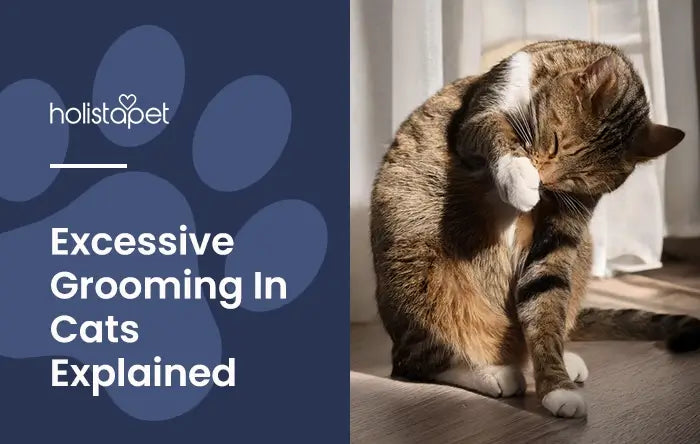Some cats act like they've seen a ghost just because the vacuum came out of the closet. Others are frightened of balloons. So, what are cats scared of? Turns out, a lot more than you might think!
Most kitties have strong reactions to anything that feels sudden or strange. But don't worry. There are ways to help your scaredy cat feel safe and chill again.
Why Do Cats Get Scared So Easily?

Because cats' survival instincts are always on. Even the sudden appearance of a new object can flip their "freak-out" switch. Also, their surroundings and previous experiences can affect how brave or skittish they act.
- Natural Instincts and Survival Responses. Cats come from a long line of hunters and hiders. Their sensitive hearing and sharp reflexes kept them alive in the wild. So they're still on edge even if the "predator" is just your washing machine.
- Past Experiences and Environmental Sensitivity. Cats afraid of seemingly harmless things often carry baggage. A rough start at a rescue center or bad run-ins with booming noises can mess with their nerves. Even a new house or piece of furniture can make them feel uneasy.
Common Everyday Things Cats Are Scared Of
Many kitties really do have a natural fear of normal stuff around the house. From loud appliances to random guests, everyday life can feel like a horror movie to a fearful cat. In the next sections, we'll let you in on the common fears that stress out our feline companions.
Loud Noises Like Thunder, Fireworks, or Vacuums
Blaring noises are public enemy number one for scaredy cats. Thunder, fireworks, and vacuum cleaners can send them into full panic mode. Hair dryers, blenders, and other loud appliances also freak them out. Cats' sensitive hearing makes those sounds feel like an attack. It's not just the volume but the suddenness and intensity.
Strangers, Visitors, or New Pets
Many felines are afraid of new people or animals invading their turf. They don't care if it's your best friend or the neighbor's puppy. New persons, unfamiliar dogs, and other cats smell different, sound different, and move unpredictably. Even a friendly hello can make a feline feel anxious. Until they feel secure again, they'll keep their distance.
Sudden Movements or Being Approached Too Quickly
Sudden movements scare cats because they look like attacks. Even reaching down to pet them too quickly can make them bolt. Our feline companions react before they think. A quick motion triggers that instinct to run or hide. Many kitties need slow, calm gestures to feel at ease.
New Scents or Rearranged Furniture
A new scent or layout can turn your cat's comfy kingdom into a maze of horror. New furniture, cleaning products, or a different litter tray scent can confuse and upset them. Your cat's environment matters, and changes throw off their sense of control. They sniff around, sense "danger," and suddenly feel anxious.
Car Rides or Travel Crates
It's the whole experience: unfamiliar sounds, shaky movements, and a tight space. Most cats associate the crate with unpleasant experiences, like going to the vet. Even a quick trip can feel like an emotional rollercoaster. Toss in the weird smells of a moving car, and your feline's fear level hits the roof.
Being Taken to the Vet or Groomer
Trips to the vet or groomer are top-tier nightmare fuel for most cats. They remember the poking, prodding, and strange smells. Even if your veterinarian is gentle, the experience feels threatening. Loud noises, other animals, and cold exam tables don't help either. That fear of the unknown—and past experiences—makes it a dreaded event every single time.
Cat Fears That Might Surprise You

Think your feline friend only fears thunder and strangers? Think again! Some of the things cats fear most are the weirdest little details around the home. We're talking cucumbers, spinning fans, and certain textures.
Fearful cats react to stuff that seems harmless, but to them, it's suspicious and off. These surprises tap into their instincts and throw off their sense of safety. Ready to peek into the quirky side of kitty fear? Let's get into it.
Cucumbers, Mirrors, and Unfamiliar Objects
Yes, cucumbers. Those sneaky green things have scared more cats than vacuums. Why? Sudden appearance. Cats turn around, see a cucumber, and freak out like it's a snake.
Mirrors mess with their minds, too. Some felines think their reflection is another cat. Others just don't trust that strange face staring back. Toss in a new object—like a weird box or decoration—and anxiety hits. Many kitties don't like surprises, especially when they sneak into their space uninvited.
Being Picked up or Restrained
Not all cats like snuggles. Some absolutely hate getting picked up. It takes away their control, and we know how cats love being in charge of their space.
Feeling restrained triggers a natural fear. It reminds them of getting caught or cornered. Even if you're just cuddling, your pet might see it as a trap. Frightened cats often squirm, hiss, or try to bolt. If your furry buddy isn't a fan of snuggling, respect their space and let them come to you on their terms.
Sudden Temperature Changes or Drafts
One chilly breeze, and your cat's suddenly wide-eyed and on edge. Sudden temperature changes feel weird and sometimes threatening to cats. They notice every shift, even if it's just the AC turning on.
Drafty windows, open doors, and a cold floor can spook your furry friend fast. Their comfort zone matters, and they don't like surprises. If your kitty bolts when the air kicks in or avoids certain rooms, they're reacting to a change that feels wrong.
Ceiling Fans or Spinning Objects
Spinning things give some cats the ick. Ceiling fans, wobbling toys, or a turning chair can make them uneasy. It's like their instincts scream, "That's not normal!"
To your kitty, a ceiling fan might look like a flying predator circling overhead. They watch it, track it, and sometimes bolt if it moves too fast. Spinning objects confuse them. They can't figure out if it's safe or suspicious. So, instead of taking chances, many cats just play it safe and run for cover.
Certain Floor Textures
Some textures send felines into a spiral of confusion and irritation. Aluminum foil on the floor results in instant panic. Tape on their paws is a full-body betrayal.
Cats walk with purpose, and weird textures ruin the vibe. Slippery, sticky, or crinkly surfaces feel unnatural under their paws. Many cats react with quick jumps, fast retreats, and dramatic foot shakes. They don't understand what the texture is; they just know they hate it. So, if your pet avoids certain spots, check what they're stepping on.
Balloons or Floating Decorations
Balloons? Nope. Floating things that wiggle and hover? Double nope. Many cats fear balloons because they move weirdly and make unpredictable sounds.
A balloon bobbing in the air looks like a threat from another planet. And if it pops, that loud noise seals the deal. Floating decorations can spook even confident felines. They don't like when objects float without a clear reason. It messes with their sense of control and makes them feel unsafe in their own house.
Specific Clothing Items or Accessories
Certain clothing items make cats act like they've seen a ghost. Some felines can't stand hats. Others lose it over sunglasses or big boots.
It's all about unfamiliar shapes and smells. Cats react to anything that looks or moves in a way they don't expect. If you walk in wearing something new and your kitty bolts, don't take it personally. They're just trying to figure out what kind of "creature" you turned into.
How To Identify When Your Cat Is Scared

Scared cats don't always meow their feelings. Sometimes, it's all in the body language. Some signs are easy to spot, while others sneak under the radar.
Ears flattened, fur puffed up, and tail low can mean they're on edge. Hiding, growling, and sudden aggression also point to a nervous or upset kitty. Learn the signals, and you'll know when to give your feline friend some space.
Body Language Signs Like Flattened Ears and Tucked Tail
Your cat's not just being cute when their ears go flat. It means they're feeling tense or upset. A tucked tail is another big clue. When your kitty pulls their tail close or tucks it under their body, they're not feeling confident.
These signals show discomfort, not sass. Their posture tells a story: hunched body, low walk, stiff legs. If you spot these signs, your furry buddy needs space, not snuggles.
Vocalizations, Hiding, or Aggressive Behavior
If your cat starts yowling like it's opera night, don't ignore it. Vocalizations—like growls, hisses, or loud meows—often mean they're scared or worked up.
Hiding is another red flag. Your pet retreats to find safety under the bed, behind the couch, or inside a closet. If they swipe or hiss, that's also fear in action. Frightened cats go into defense mode fast. Understanding the cause helps you calm the chaos before it turns into unwanted behaviors.
How To Ease Common Cat Fears Naturally
You can help ease your cat's fears with small changes that make a big difference. The goal: a calmer, happier feline friend who isn't running from hair dryers or guests.
- Create Safe Spaces and Quiet Zones. Give your cat a go-to hideout where no one bothers them. A cozy corner, a high perch, or a quiet room works great. Let them retreat when things feel overwhelming. This helps reduce agitation and rebuild trust.
- Use Natural Calming Aids Like CBD. Soothing support can come in small, tasty doses. CBD products and herbal blends may help your kitty feel relaxed, especially during stressful moments. HolistaPet's CBD collection for cats is a gentle, natural option that supports calm behavior. Our CBD goodies—from crunchy treats to soft chews to oils to capsules—are all-natural, vet-approved, and lab-tested for your pet's comfort and peace of mind.
When To Seek Professional Help for Fearful Behavior

Sometimes, fear sticks around no matter what you do. If your cat's nervous habits start messing with daily life, we recommend contacting the pros. Don't wait until your kitty's hiding 24/7 or skipping the litter tray.
A vet can rule out any health problems causing discomfort. If everything checks out, a behaviorist can help spot triggers and guide you through fixes. Constant fear is stressful and can lead to unwanted behaviors. When in doubt, it's okay to ask for help.
Final Thoughts – Supporting Your Cat Through Fearful Moments
Our feline companions are sensitive, sassy little creatures with big feelings. Understanding what scares them helps us humans create homes where every kitty feels safe and not spooked. Keep an eye on those sudden zoomies or nervous hiding. Also, comfort, patience, and a few calming tricks can go a long way.
If your kitty needs extra chill support, HolistaPet's CBD collection is a gentle, natural way to help your furry friend stay cool when life gets loud. Fear happens, but you've got this, and so do they.
Learn what scares cats and how to help—cat care made simple!







![Probiotics For Dogs [Soft Chews] - HolistaPet](http://www.holistapet.com/cdn/shop/files/Probiotic-Infographic-1_472d7a29-e30c-435a-9638-1365d8c3a9f9.jpg?v=1725384841&width=104)





























Leave a comment
All comments are moderated before being published.
This site is protected by hCaptcha and the hCaptcha Privacy Policy and Terms of Service apply.